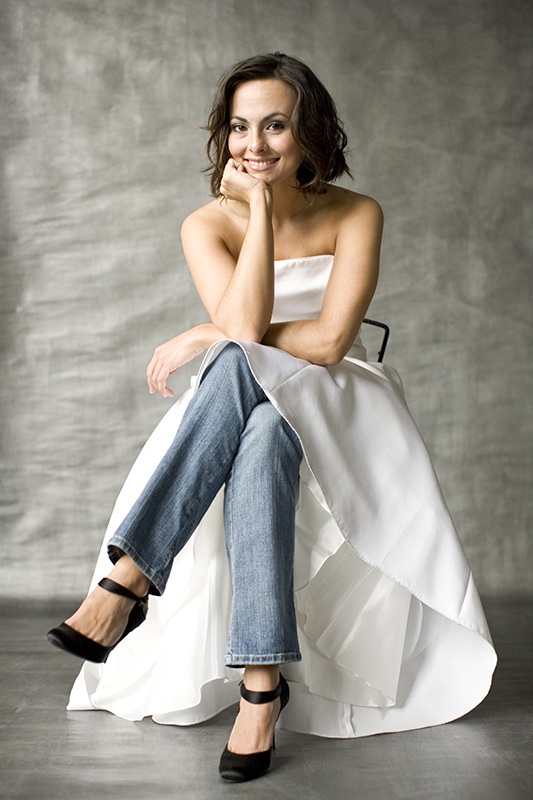Sharon Isbin and Isabel Leonard at the Terrace Theater
By Stephen Brookes • The Washington Post • March 25, 2015
Is there a better antidote to the chill of this endless winter than the hot-blooded music of Spain? Well, okay — maybe tickets to the Caribbean. But a close second was Tuesday night’s impassioned performance by mezzo-soprano Isabel Leonard and guitar legend Sharon Isbin, who brought two hours of fiery, flamenco-steeped music to the Terrace Theater as part of the Kennedy Center’s “Iberian Suite: Global Arts Remix” festival. Isabel LeonardA subtle if slightly austere guitarist, Isbin displayed her superb technique and suggestive sense of poetry throughout the evening, particularly in familiar short works for solo guitar that included the glowing “Asturias” by Isaac Albéniz, Francisco Tárrega’s heartbreaking “Recuerdos de la Alhambra,” and others by Enrique Granados and Joaquin Rodrigo.
Isabel LeonardA subtle if slightly austere guitarist, Isbin displayed her superb technique and suggestive sense of poetry throughout the evening, particularly in familiar short works for solo guitar that included the glowing “Asturias” by Isaac Albéniz, Francisco Tárrega’s heartbreaking “Recuerdos de la Alhambra,” and others by Enrique Granados and Joaquin Rodrigo.
But the real star of the evening turned out to be the less-familiar Leonard, a rising young mezzo with a radiant, bell-like voice and a captivating sense of drama. The duo opened with four folk-based songs from the “Canciones Españolas Antiguas” by Federico Garcia Lorca (in arrangements by Isbin), and Leonard immediately seemed in her element, probing the dark, unsettling veins of tragedy and pathos — from blood feuds to early deaths — that run through every note. This is music that, as Lorca said, asks “a terrible question that has no answer,” and Leonard dug deeply into their mysteries, proving herself more than just a pretty voice.
That said, what a voice it is — supple, perfectly controlled, capable of great power, but with a lilt, purity and expressive warmth. Then there’s her engaging charm: After singing a lullaby from Xavier Montsalvatge’s “Cinco canciónes negras,” Leonard coaxed a young girl from the audience to join her onstage for an impromptu dance to “Canto negro.”
The duo, who played with a deep sense of connection and conviction all evening, closed with a richly colored reading of the “Siete canciones populares Españolas” by Manuel de Falla, and a standing ovation brought them back for a final (and spectacular) encore, Agustín Lara’s “Granada.”


Reader Comments